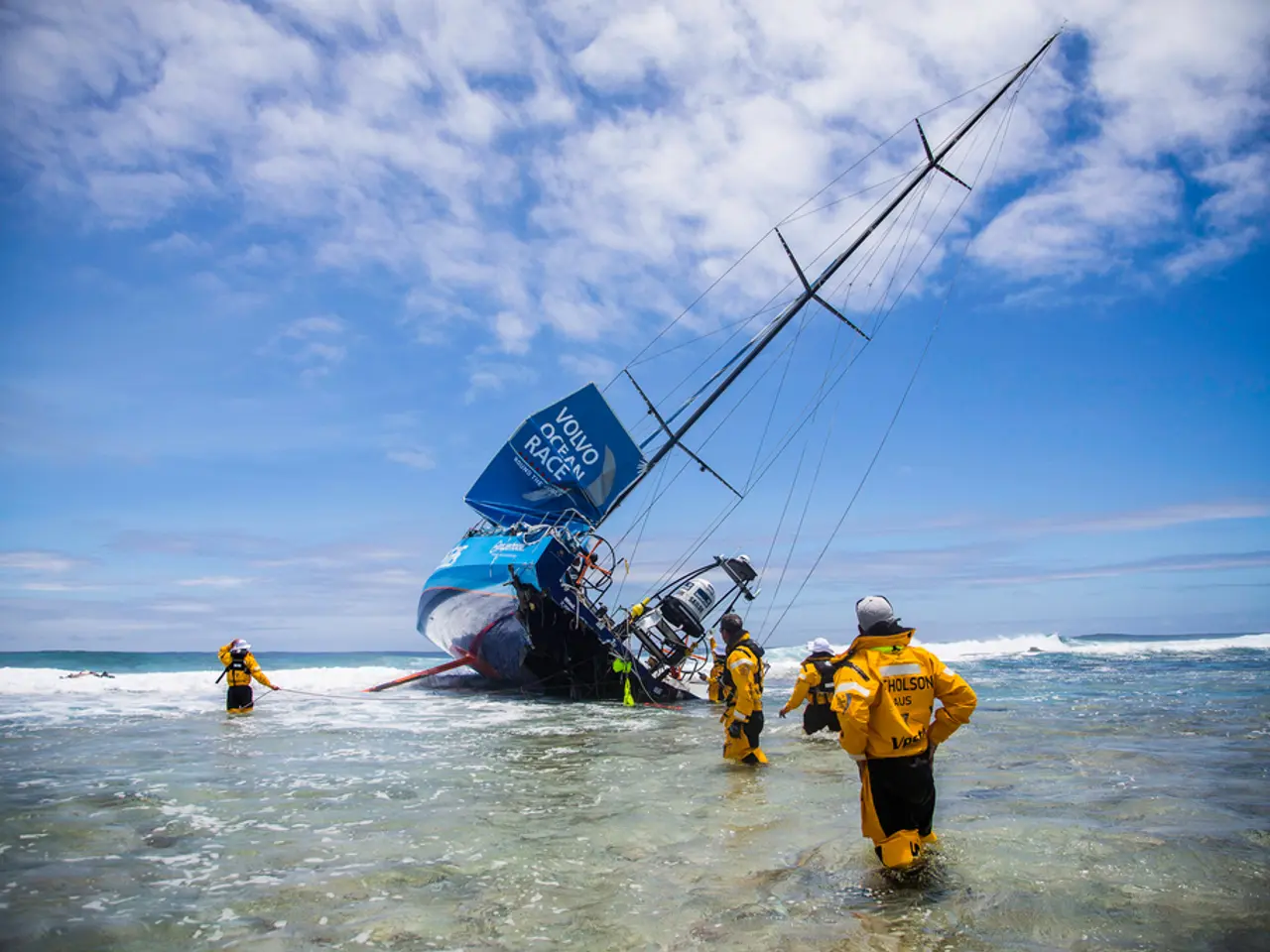Titan Sub catastrophe subjected to damning Coast Guard review in U.S.A.
Titan Submersible Disaster: A Failure of Safety Protocols
In a tragic turn of events, the Titan submersible, owned and operated by OceanGate Expeditions, imploded while descending to the wreck of the Titanic in the Atlantic Ocean in June 2023. The incident resulted in the loss of five lives, including the founder of OceanGate, Stockton Rush, and four passengers.
The U.S. Coast Guard launched an investigation into the causes of the disaster in August 2023, with the U.S. Coast Guard Marine Board of Investigation (MBI) releasing a report detailing the failures that led to the catastrophe. The report, penned by author Neubauer, highlights the importance of proper oversight and adherence to safety protocols for deep-sea submersibles.
Neubauer believes the report's findings will improve awareness of risks and the importance of following established engineering and testing protocols. He is optimistic that the report's recommendations will provide a pathway for innovation in the field of deep-sea exploration.
The primary causal factor for the implosion was OceanGate's failure to follow these protocols in multiple critical ways. The MBI report found that the Titan submersible's pressure vessel suffered a catastrophic implosion due to loss of structural integrity, attributed to OceanGate's deficient practices in design, certification, maintenance, and inspection.
Moreover, OceanGate failed to properly analyze the carbon fiber hull material or conduct sufficient testing to validate the submersible's safety. The company over-relied on a proprietary real-time monitoring system that was insufficient to detect critical failures.
The report also found that OceanGate's founder, Stockton Rush, neglected numerous safety issues, even after incidents that compromised the submersible's integrity. He intentionally evaded regulatory oversight by misclassifying passengers and hiding serious safety flaws.
The Titan operated without certification from any government or third-party agency and was not subject to formal safety regulations because it operated in international waters and did not embark passengers from a port. OceanGate treated the submersible as experimental and required passengers to sign risk waivers acknowledging the hazards.
The MBI report characterized OceanGate's corporate culture as “toxic,” with a disconnect between written safety protocols and actual practices, including falsifying or downplaying key safety information to evade scrutiny.
The Coast Guard report concluded the disaster was preventable and called for stronger domestic and international regulatory frameworks for innovative submersibles, along with improved oversight of design, testing, and operational safety practices. The National Transportation Safety Board's investigation is ongoing to further determine causation.
The commandant is currently reviewing the report and will confirm any actions to be pursued to prevent such tragedies in the future. Neubauer suggests stronger oversight for operators exploring new concepts to ensure the safety of both the explorers and the public.
[1] U.S. Coast Guard Marine Board of Investigation Report on the Titan Submersible Disaster [2] The New York Times, "Titan Submersible Disaster: A Failure of Safety Protocols," 2023 [3] BBC News, "Investigation Finds Fault with Titan Submersible Operators," 2023
- The tragedy of the Titan submersible, operated by OceanGate Expeditions, highlighted the crucial role that environmental-science plays in ensuring the safety of deep-sea explorations.
- The implosion of the Titan submersible in the Atlantic Ocean underscores the importance of climate-change research, as it demonstrates the potential hazards that lie beneath the ocean's surface.
- The report on the Titan submersible disaster underscores the relevance of space-and-astronomy research in understanding and adapting to the challenges of exploring extreme environments.
- The failure of the Titan submersible's proprietary real-time monitoring system showcases the necessity of applying data-and-cloud-computing in detecting critical failures in such high-risk technologies.
- The lack of proper certification for the Titan submersible raises concerns about technology development and its impact on policy-and-legislation related to safety regulations.
- The evasion of regulatory oversight by OceanGate points toward the significance of politics and crime-and-justice in ensuring accountability for accidents and maintaining public safety.
- The toxic corporate culture at OceanGate brings to light the danger of general-news and car-accidents being overshadowed by sensational headlines of celebrity voyages, overshadowing the importance of safety in exploration.




